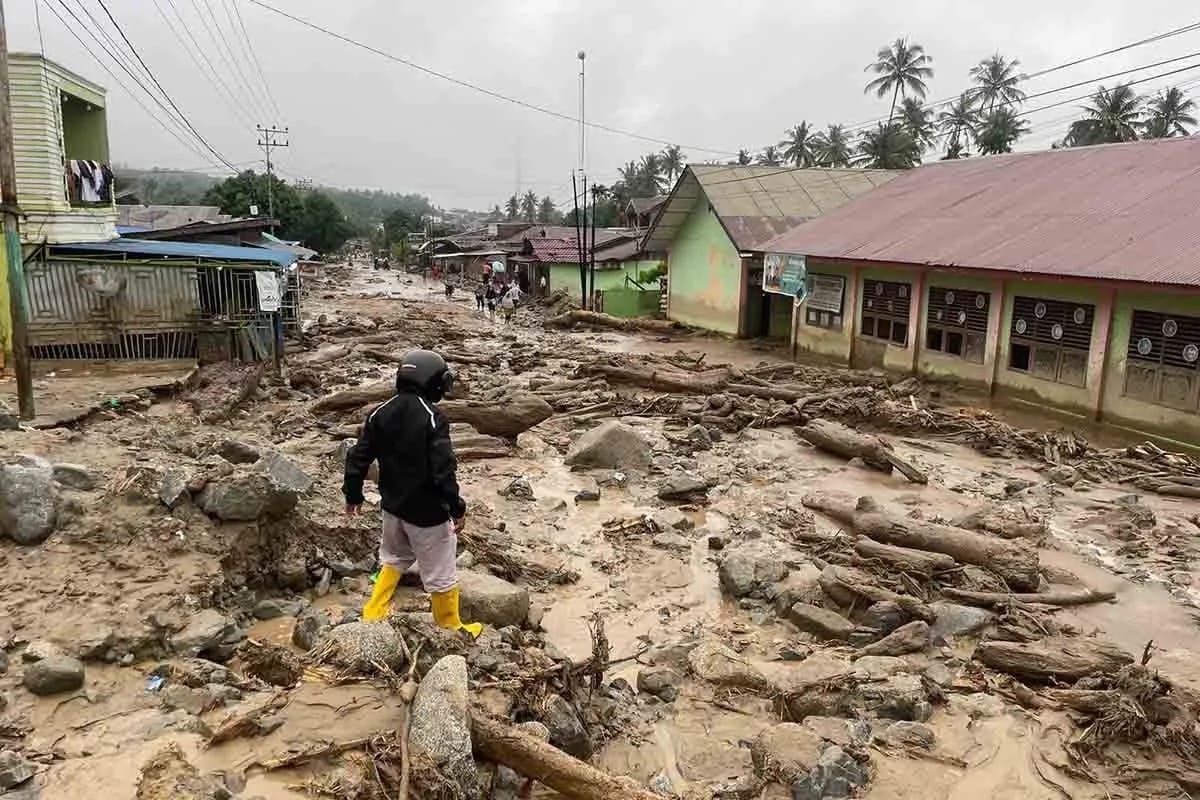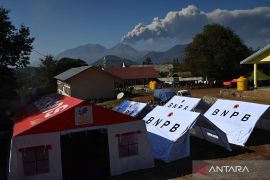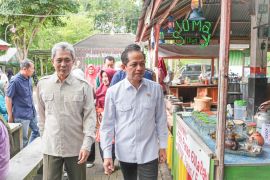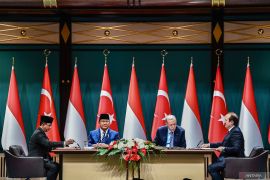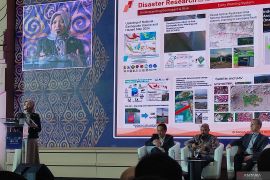During the 2020-2023 period, thousands of natural disasters had struck Indonesia, with 4,940 disasters having occurred last year and about six thousand disasters been recorded over the course of the 2020-2021 period.
The natural disasters that had plagued Indonesia in 2023 were largely hydrometeorological in nature, such as floods, landslides, and extreme weathers, based on data from the National Disaster Mitigation Agency (BNPB).
The BNPB confirmed that Indonesia had been witnessing increases in the number of natural disasters though they had proven to not necessarily mirror the severity of the impacts.
The number of houses damaged by disasters in 2021 stood at 158,659, though the figure decreased to 95,403 in 2022 and further declined last year despite the country seeing intensified frequency of disasters in those years, according to BNPB Head Military Lieutenant General Suharyanto.
He stated that despite ranking among regions with the highest number of disasters, West Java Province did not record any damage to houses in as many as two provinces in Nusa Tenggara whose rate of natural disaster occurrences was, in fact, lower in comparison.
Suharyanto explained that the reason behind the trend is the fact that during the 2022-2023 period, the most frequent disasters in the Nusa Tenggara region were related to tropical cyclones instead of merely hydrometeorology.
Related news: Police chief highlights importance of disaster risk management
Meanwhile, Deputy Speaker of the People's Consultative Assembly (MPR) Lestari Moerdijat underscored that the potential extreme weather in the seasonal transition must be anticipated by promoting disaster mitigation in the community.
Promoting disaster mitigation in a country surrounded by volcanoes and with the potential for extreme weather is a crucial effort, Moerdijat stressed.
According to the MPR deputy speaker, the impact of changes in weather, which can potentially cause disasters, must be anticipated as well as possible. The Meteorology, Climatology, and Geophysics Agency (BMKG) has predicted that the moderate El Nino phenomenon will end in February 2024.
Furthermore, she noted that on account of the conditions in Indonesia, which is prone to disasters, all citizens should be given adequate understanding and knowledge to mitigate various disasters.
Moerdijat stated that efforts to increase the understanding of disaster mitigation can be carried out through learning processes at various levels of education.
She noted that information on disaster mitigation must also be disseminated to community groups to improve their knowledge and understanding.
She remarked that the BNPB had made efforts to realize the resilience of the community in responding to disasters through steps, such as by developing the Disaster Resilient Village (Destana) Program, which was first initiated in 2012.
The MPR deputy speaker assessed that the more the number of people at all levels understand disaster mitigation, the better will be the disaster management efforts in the country.
Moerdijat emphasized that efforts to overcome natural disasters, in fact, required the involvement of policymakers and all elements of society to ensure the protection and safety of all in the country.
Related news: BNPB urges regional govts to create earthquake-resistant house program
Meanwhile, the BMKG encourages ministries, institutions, and universities, as well as disaster practitioners and other stakeholders, to strengthen knowledge management of natural disasters in Indonesia.
Head of BMKG Dwikorita Karnawati stated that knowledge management of natural disasters in Indonesia should be strengthened and synergized.
Differences in opinions and analyses are inevitable. Differences are valuable, yet how may differences complement each other from a broader perspective of understanding, she stated.
During the webinar, titled "Kupas Tuntas Gempa Sumedang M4.8 on 31 December 2023,” held on Thursday (Jan 11), she stated that strong knowledge management will further minimize the impact of losses and accelerate the realization of zero victims.
Karnawati believes that Indonesian knowledge management is currently quite strong, as the arena or terrain faced is quite complex and extensive.
"I am sure that the BRIN, Geological Agency, ITB, UI, ITS, UGM, and BMKG have a lot of knowledge, (and) if this is synergized together, we can view a disaster event in a multi-angle (perspective) that can strengthen and complement each other," she noted.
Karnawati remarked that the Indonesian Earthquake and Tsunami Consortium (KGTI) was founded in 2022 to increase knowledge management.
This consortium contains experts and researchers of earthquakes and tsunamis from various relevant ministries and institutions, universities, and disaster practitioners.
The presence of KGTI aims to increase the independence of the nation to strengthen the operation of the Tsunami Early Warning System.
KGTI is divided into three working groups, namely, the earthquake work group, the tsunami work group, and the work group for evaluation along with development and strengthening of monitoring, analysis, and dissemination systems for earthquakes and tsunamis.
"The involvement of experts and researchers from various institutions and universities will certainly further strengthen the BMKG, especially related to the study and analysis produced," she remarked.
Karnawati is upbeat that the various knowledge produced by institutions as well as researchers and academics would be followed up by the government, especially for improving planning and strengthening community disaster literacy and mitigation actions.
Related news: BMKG urges stakeholders to improve disaster knowledge management
Editor: M Razi Rahman
Copyright © ANTARA 2024
